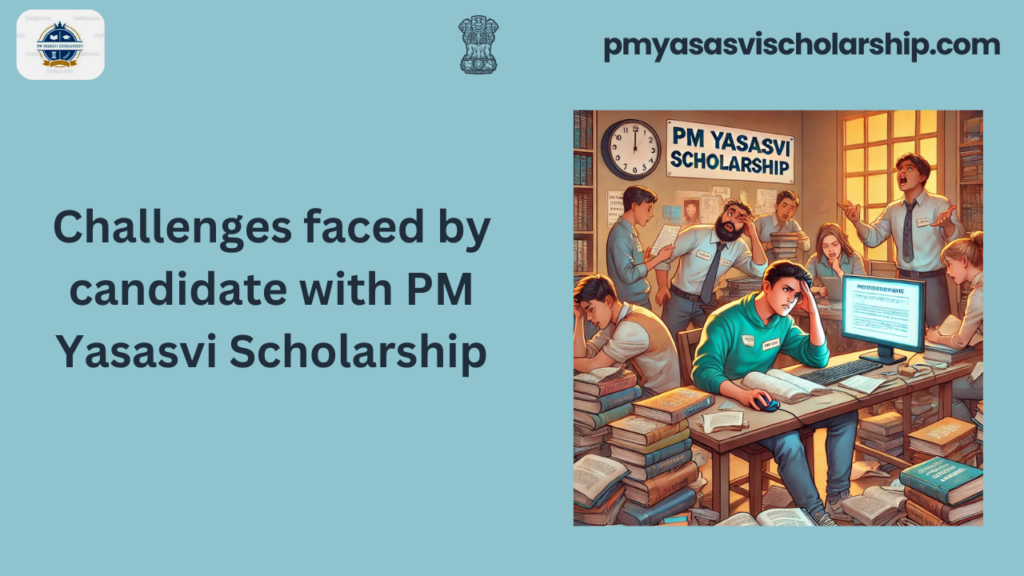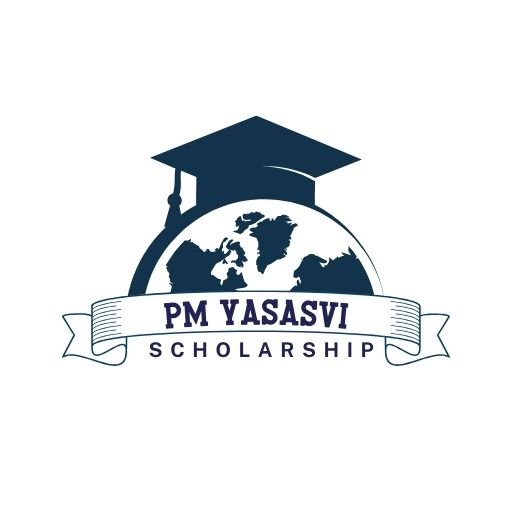Challenges faced by candidate with PM Yasasvi Scholarship

Introduction
The PM Yasasvi Scholarship shines as a beacon of hope for countless students across India, offering OBC and EBC candidates a pathway to higher education without the heavy weight of financial burdens. It empowers students to chase their dreams, but like any worthwhile journey, challenges arise along the way. The process can feel daunting, with bumps that slow down even the most determined candidates. From navigating complex applications to dealing with societal pressure, students face a variety of obstacles. Let’s dive into these challenges and explore how candidates can tackle them head-on!
Challenges in the Application Process
Students often face one of their first hurdles when navigating the complex eligibility criteria. The PM Yasasvi Scholarship requires candidates to meet specific conditions related to caste, income, and academic performance. These criteria aim to ensure the scholarship reaches deserving individuals, but they can easily cause confusion. Each state may apply slight variations in rules, which complicates matters and makes it difficult for students to determine if they qualify. For many, particularly those in rural areas, understanding these requirements feels like cracking a secret code.
Moreover, the technical side of the application process adds another layer of frustration. To make matters worse, the offline submission process at Common Service Centers (CSCs), meant to bridge the digital divide, frequently falls short. Many rural areas lack these centers, and the ones that do exist often face long wait times and inadequate services, further complicating the process for students.
Read More :- The CSC Role : Heart of the PM Yasasvi Scholarship
Challenges During the Entrance Exam
Once the application process is behind them, candidates are faced with the entrance exam. Sounds daunting, right? That’s because it often is! The pressure to perform well in the exam is immense. With so many students competing for limited spots, it’s no surprise that anxiety is at an all-time high during this phase. For many, it’s not just an academic challenge; it’s an emotional one too.
And as if the pressure wasn’t enough, the inaccessibility of exam centers adds another hurdle. For students from remote areas, getting to an exam center can be a logistical nightmare. Some candidates have to travel miles, often without reliable transportation. This inconvenience can be a deal-breaker for many students. And then there are technical glitches—oh, the horror! Imagine preparing for months only to face a system crash during the test! It’s enough to give anyone a headache.
Post-Selection Challenges
Hooray, you’ve cleared the exam! But wait—there’s more. Post-selection, candidates often face delays in receiving the scholarship funds. The delay in disbursement can be frustrating, especially for students who rely on these funds for their daily expenses, tuition, and books. When the money doesn’t come on time, it creates a ripple effect on their academic progress and mental well-being. This is where the lack of communication makes things worse—students are often left in the dark about when the funds will actually arrive.
Another issue? Retaining the scholarship. Maintaining the required academic performance can be tough, especially when juggling personal responsibilities, part-time jobs, and financial hardships. On top of that, the process of renewing the scholarship can be cumbersome, with endless paperwork and deadlines. The lack of clear communication from authorities only adds to the stress—candidates struggle to get timely updates or resolve issues related to their scholarship status.
Social and Emotional Challenges
While financial and academic challenges are significant, social and emotional pressures weigh heavily on candidates as well. For many, particularly those from OBC or minority communities, the expectations from family and society can feel overwhelming. Families often place immense pressure on students to excel academically. While family support is crucial, this constant push can lead to stress and burnout.
In addition to academic pressure, mental health concerns emerge as a major issue. The constant juggling between academics, personal responsibilities, and societal expectations drains many candidates. When combined with the uncertainty of scholarship disbursement and the stress of maintaining academic standards, it’s no surprise that students often experience heightened anxiety. Sadly, mental health resources for PM Yasasvi scholars remain scarce, forcing students to navigate these emotional challenges alone.
Moreover, balancing studies with personal responsibilities becomes a challenge for many. Some students, in addition to their academic workload, must financially support their families or take care of younger siblings. This delicate balancing act can become overwhelming, negatively affecting both their academic performance and mental well-being.
Challenges in Career Development and Mentorship
Once the scholarship period concludes, candidates encounter yet another set of challenges—career development. One significant obstacle is the absence of proper mentorship programs. Without structured guidance, many candidates struggle to effectively plan their career paths. This challenge becomes especially critical for individuals from underrepresented communities, who often lack access to informal networks or mentors in their fields.
Furthermore, networking opportunities for PM Yasasvi scholars remain limited. While alumni networks and career counseling services play essential roles in career development, these resources often fall short. Consequently, candidates find themselves navigating the post-scholarship world alone, facing difficulties in securing internships or job placements. The uncertainty regarding their careers looms large, as students often feel unsure about how to leverage their scholarship experiences for future opportunities.
Specific Challenges for OBC Candidates
For OBC candidates, the challenges can be even more pronounced. Social discrimination and bias are still prevalent in many parts of India, which adds an extra layer of difficulty for these students. They may face bias not just in educational settings but also in professional environments, making it harder to achieve their full potential.
Additionally, OBC students often come from areas with limited access to quality education and resources, making it challenging to compete with students from more privileged backgrounds. This disparity in educational opportunities makes the journey toward securing and maintaining the scholarship even more arduous.
